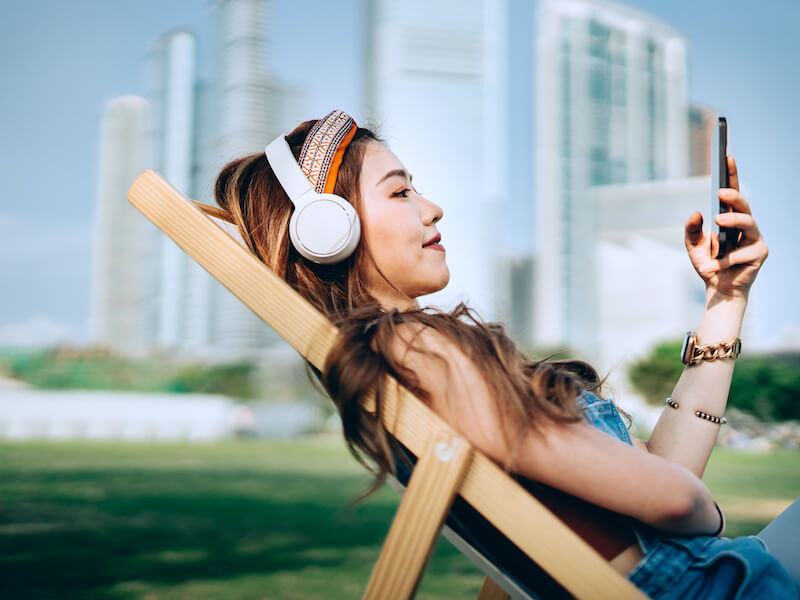
Aiden enjoys music. While he’s out running, he’s listening to Pandora, while working it’s Spotify, and he has a playlist for all his activities: cardio, cooking, video games, you name it. His headphones are almost always on, his life a fully soundtracked affair. But the exact thing that Aiden loves, the loud, immersive music, could be causing permanent harm to his hearing.
There are ways to enjoy music that are safe for your ears and ways that are not so safe. But the more dangerous listening option is usually the one most of us use.
How does listening to music lead to hearing loss?
As time passes, loud noises can cause deterioration of your hearing abilities. We’re used to thinking of hearing loss as an issue related to aging, but more and more research suggests that it’s really the accumulation of noise-related damage that is the problem here and not anything inherent in the process of aging.
Younger ears which are still developing are, as it turns out, more vulnerable to noise-induced damage. And yet, the long-term damage from high volume is more likely to be ignored by young adults. So because of extensive high volume headphone usage, there has become an epidemic of hearing loss in young people.
Can you listen to music safely?
It’s obviously dangerous to listen to music at max volume. But simply turning the volume down is a safer way to listen. Here are a couple of general guidelines:
- For adults: 40 hours or less of weekly listening on a device and keep the volume below 80dB.
- For teens and young children: You can still listen for 40 hours, but keep the volume level below 75dB.
About five hours and forty minutes a day will be about forty hours a week. Though that may seem like a while, it can seem to pass quite quickly. Even still, most individuals have a fairly reliable concept of keeping track of time, it’s something we’re taught to do efficiently from a really young age.
Monitoring volume is a little less user-friendly. Volume isn’t gauged in decibels on the majority of smart devices such as TVs, computers, and smartphones. It’s measured on some arbitrary scale. Perhaps it’s 1-100. Or it could be 1-10. You may have no idea what the max volume on your device is, or how close to the max you are.
How can you monitor the volume of your tunes?
It’s not very easy to tell how loud 80 decibels is, but luckily there are a few non-intrusive ways to tell how loud the volume is. Distinguishing 75 from, let’s say, 80 decibels is even more puzzling.
That’s why it’s highly suggested you utilize one of many cost-free noise monitoring apps. These apps, widely available for both iPhone and Android devices, will give you real-time readouts on the noises surrounding you. That way you can track the dB level of your music in real-time and make adjustments. Your smartphone will, with the correct settings, inform you when the volume gets too loud.
The volume of a garbage disposal
Generally, 80 dB is about as noisy as your garbage disposal or your dishwasher. So, it’s loud, but it’s not too loud. Your ears will start to take damage at volumes above this threshold so it’s a significant observation.
So pay close attention and try to avoid noise above this volume. If you do listen to some music above 80dB, remember to limit your exposure. Maybe minimize loud listening to a song instead of an album.
Listening to music at a higher volume can and will cause you to develop hearing issues over the long term. Hearing loss and tinnitus can be the result. The more you can be cognizant of when your ears are entering the danger zone, the more informed your decision-making will be. And hopefully, those decisions lean towards safer listening.
Still have questions about keeping your ears safe? Call us to explore more options.

